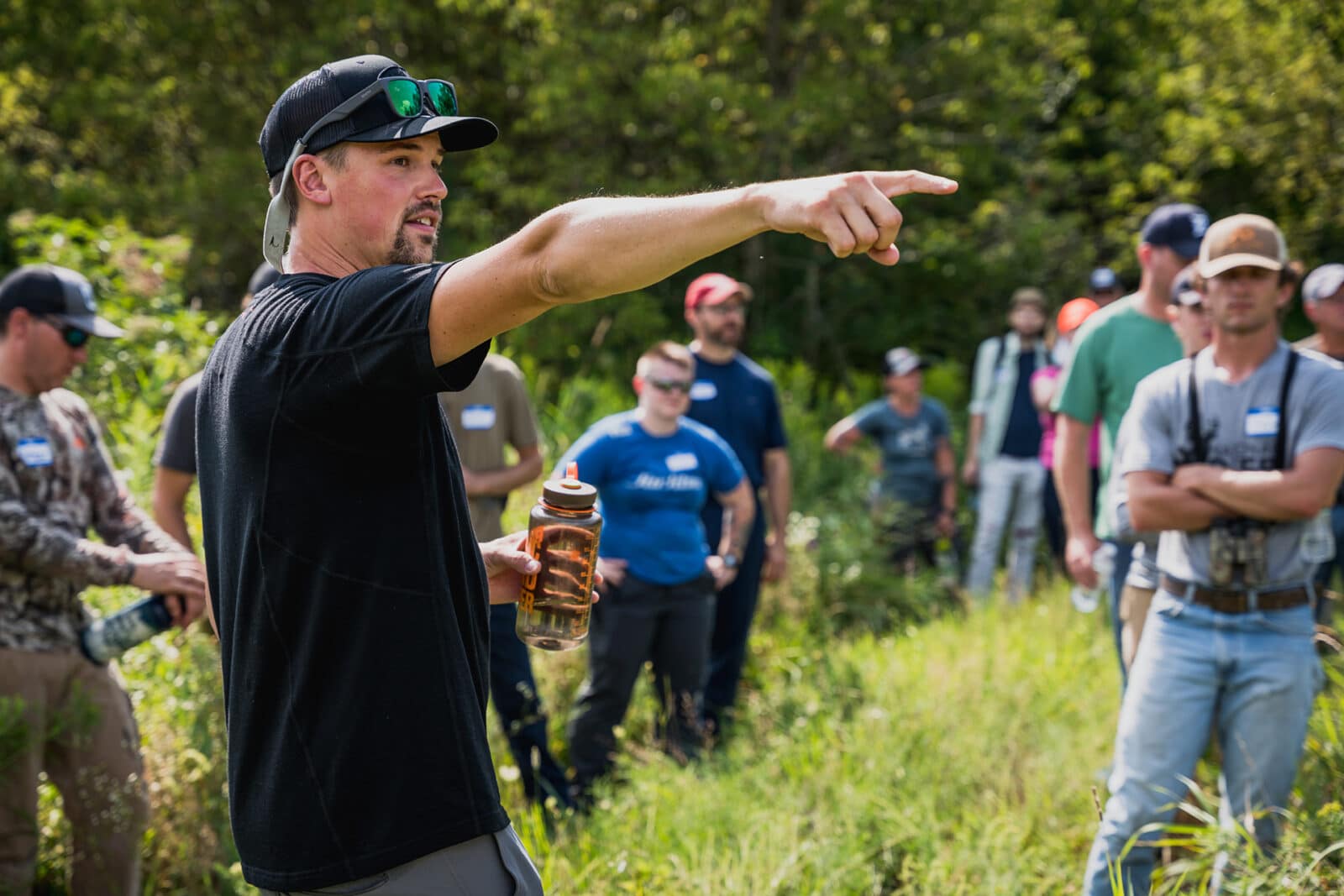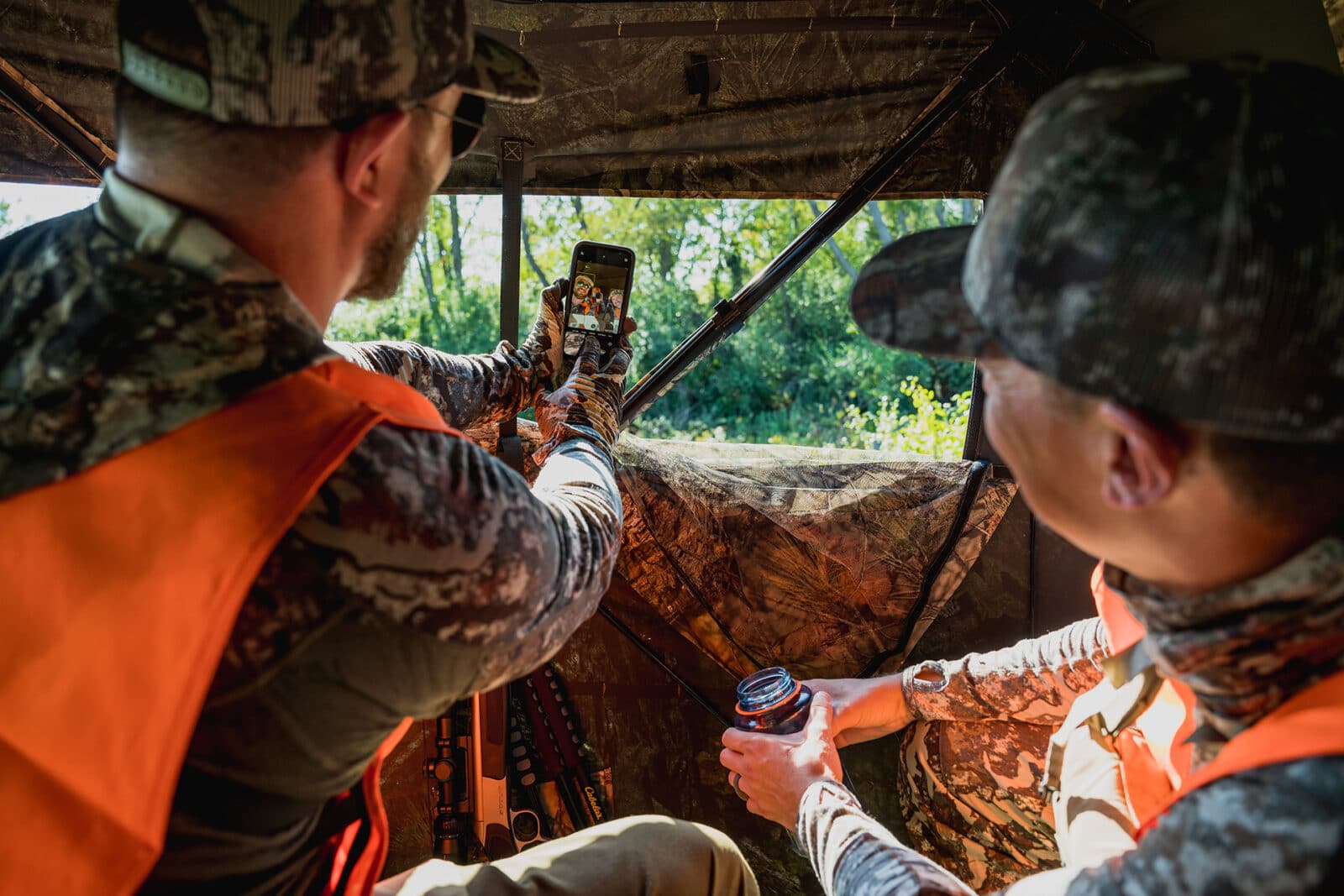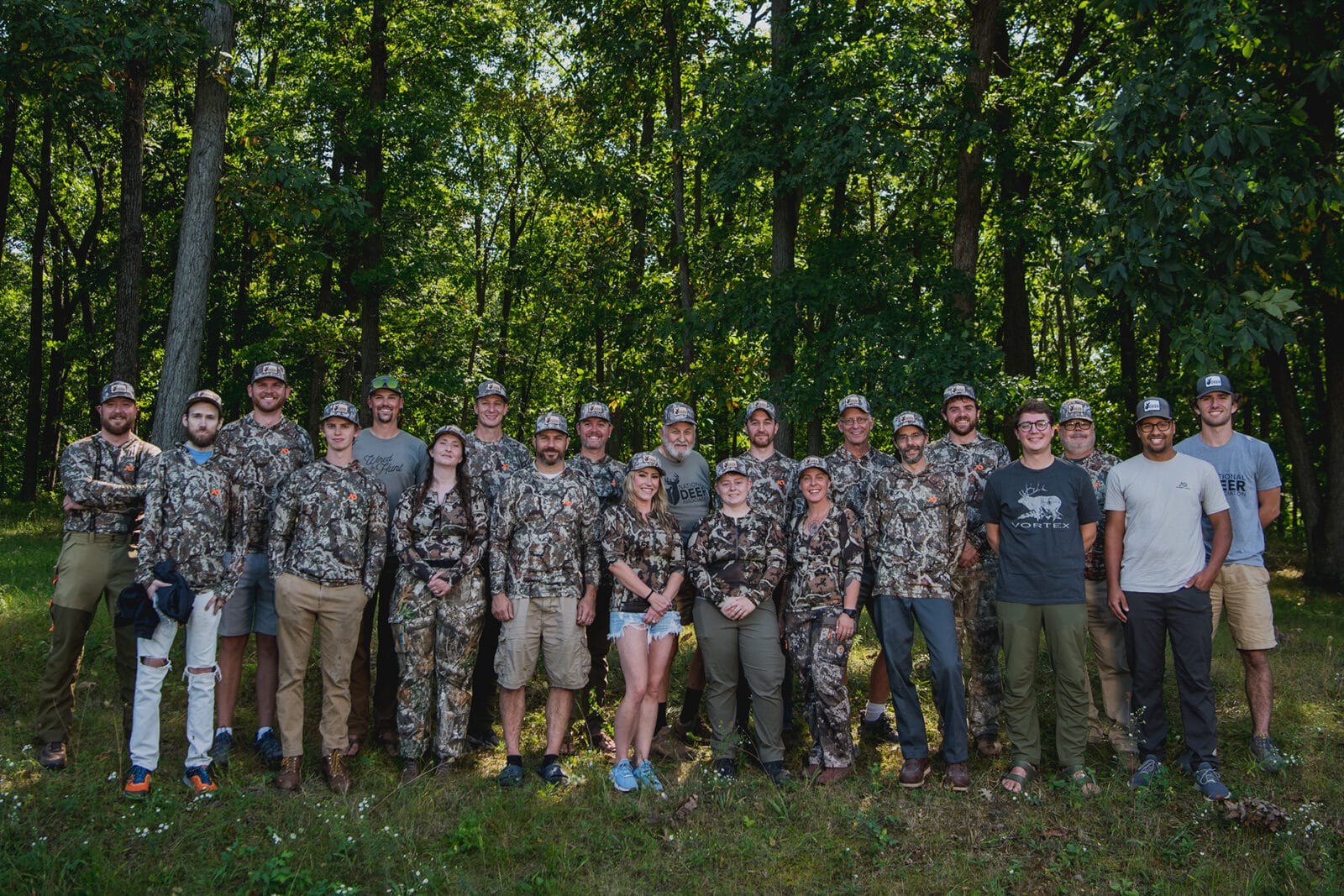Becoming a hunter as an adult is hard. Oft-cited challenges include a lack of knowledge about where to hunt; the burden of finding the time to train, scout, and hunt while working and caring for a family; and the difficulty of identifying a mentor or teacher to guide the way. When we examine the motivations that draw people toward hunting, however, one theme dominates—the desire to procure one’s own food from the source.
In this space between barriers and desire, the National Deer Association (NDA) saw an opportunity and created Field to Fork. This “food-focused hunter recruitment program for adults from non-hunting backgrounds” was established in 2016 and piloted in Athens, Georgia, the hometown of NDA. With assistance from the Georgia Department of Natural Resources Wildlife Division and the National Wild Turkey Federation, Field to Fork offers prospective hunters the opportunity to “participate in a season-long mentored hunting program” to “teach them how to hunt and acquire a wild, healthy, local sustainable source of food on their own.”
Field to Fork History
Augusto Zimmermann was born in Brazil, and he had rarely even considered the subject of hunting before he immigrated to the US in 2009 to obtain a PhD in Mechanical Engineering at the University of Illinois.
“Hunting [in Brazil] is not very popular. It’s even vilified. There are a lot of regulations against it, and the only species that are regulated for hunting are invasive species like wild hogs. Some people I’ve seen lately doing water buffalo hunting, but that’s on farms so it isn’t considered a game animal. It’s actually considered livestock.”
During his younger years, Augusto did grow up fishing with his father and learning to appreciate the outdoors. It was his exposure to hunting shows on television and the hunting culture of rural Illinois that piqued his curiosity, but Augusto credits the MeatEater podcast and television show with awakening him to the possibility that he could one day become a hunter. The question, though, remained. “How do I start?”
The NDA’s Field to Fork program took its first steps in 2016 at, of all places, local farmers’ markets. There, visitors were offered the opportunity to taste a variety of venison dishes and presented with literature making the case for responsible and sustainable deer harvest. Those who expressed interest in learning more were then given the chance to enroll in the first wave of Field to Fork.

Making the connection between hunting and food as a means of recruitment was not, in and of itself, an original thought. In fact, the idea originated with the Kentucky Department of Fish & Wildlife, who allowed NDA to run with the idea. But developing a thoughtful, comprehensive program and dedicating significant resources to its success? That was new.
“The reception to Field to Fork,” according to Program Director Hank Forester, “still shocks me. When Charles Evans and I started our pilot program in Athens, GA, in 2016, we were just following what experience and data suggest—82% of Americans approve of hunting deer and turkey for food, yet roughly 4.5% take part.”
A Hunter Is Born
After completing school in Illinois, Augusto relocated to north Georgia. Following the move, he started to dig into the Georgia hunting landscape. It was a Google search that landed him on the Georgia DNR website, where he came across a link to Field to Fork. He reached out, and, as he tells it, found himself immediately in the fast lane.
“I decided to send an email. Hank [Forester] responded to me, I submitted a questionnaire, and then I went on to attend a course at QDMA (now NDA) headquarters. . . . I got paired with a mentor, and we went hunting a couple times. Our first time sitting in the stand, I got pretty excited when I heard something. It was a squirrel. We didn’t see any deer until the fourth or fifth sit. I drew my bow back, she spooked, and she took off.”
Augusto came up empty in his first season, but his luck would soon change. The following year, after obtaining permission to hunt a piece of private land, he consulted with friends and mentors about a strategy on how to approach the land.

“I sat in a stand. It was gun season. Right as the sun was setting, maybe five or ten minutes of shooting light left, a little doe stepped into the food plot. I took a shot, and that was my first deer.”
“If it weren’t for Field to Fork,” says Augusto, “I would probably still be trying to figure out [how to start hunting]. Before Field to Fork, I had a buddy at work who said that I could hunt at his family property. Of course, deer season came and went, and it never happened. Field to Fork was really a blessing from a learning experience and from a connecting with other hunters experience. [I know] the stereotype that even fishermen have that they don’t want anyone in their fishing hole or hunters don’t want anyone in their hunting spots, but there’s a lot of people that are just happy to go out and teach you the ropes and have you enjoy it. The food aspect, though, is what really means a lot to me.”
Looking Ahead
The program’s initial framework was successful enough that it has since been replicated at other locations around the country. It is innovative approaches like this that will secure a future for hunting. NDA’s Field to Fork Program should serve as a reminder that we are all ambassadors for the sport, and with that comes the responsibility to uphold a high ethical standard everywhere from the field to the farmers’ market.

And as for that future, we’d all do well to heed Hank’s words when he says, “Honestly, we’ve never believed organized programs like Field to Fork will be the primary path forward. We need the 11.5 million hunters to begin to change their culture and values. We need to begin to value mentorship as a basic tenant of what it means to be a good hunter . . . How many hunters are making a concerted effort to identify adults outside of their families and current hunting culture, being a great advocate for hunting, and inviting those interested to join them afield? Obviously not enough. That’s what needs to change. We hope Field to Fork shows how ripe the opportunity is and inspires them to get out there and join us.”